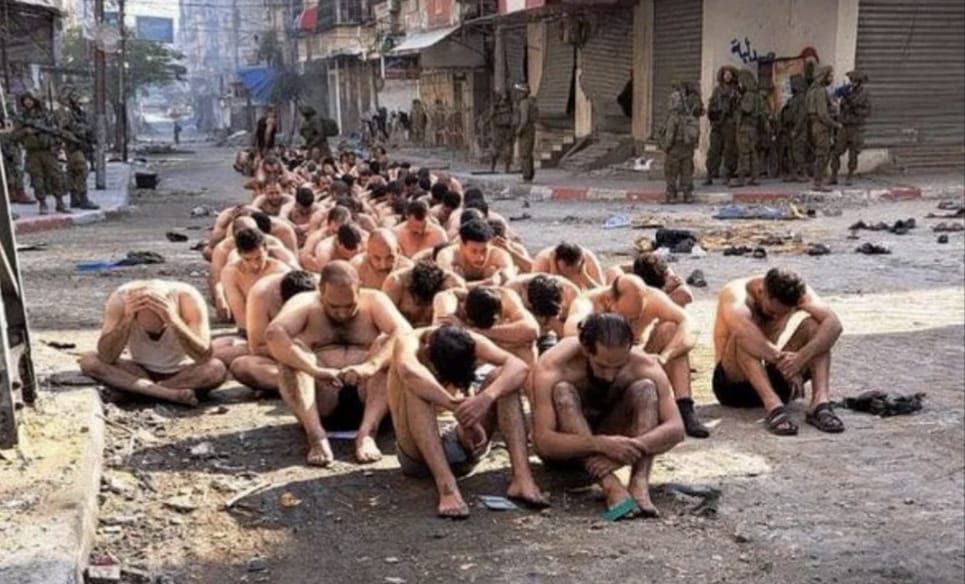Gaza: Dozens of Palestinian men stripped to their underwear, blindfolded and made to kneel while detained by Israeli forces in Gaza can be seen in images that emerged on social media Thursday.
The photos and videos were circulated widely, with NBC News able to geolocate some of the footage to the city of Beit Lahia in the northern Gaza Strip. It was unclear exactly when and in what circumstances the detentions depicted in the images occurred, although it appears to be the first time that such images have been shared online and by Israeli news media.

In one photo shared on social media, men can be seen wearing nothing but underwear as they kneel in a line, surrounded by soldiers in full combat gear wielding guns amid shoes and clothing that are lying scattered on the ground.
They are kneeling in front of a bombed-out building that once housed a pharmacy in Beit Lahia, a city that has remained a hub of clashes in the north even as Israel’s military has turned its focus to an assault on the south. In the background, more Palestinian men can be seen herded in the back of a camouflaged Israeli military vehicle.
The photos depicted more than 20 individuals kneeling on the pavement, heads bowed, while others were crammed into a nearby truck, both scenes under the watchful presence of Israeli soldiers.
Among the discarded shoes and sandals strewn across the road, the semi-naked men appeared surrounded and exposed.

Israeli television aired footage claiming these men were captured Hamas fighters discovered in Gaza City.
The location, said to be in areas considered strongholds for Hamas – Jabalia and Shejaiya – raised questions and drew attention to the situation’s complexity.
Israeli government spokesperson Eylon Levy underscored that these were military-age men found in regions where civilians had been advised to evacuate weeks ago.
Amidst this troubling portrayal, some Palestinians recognized familiar faces in the images shared on social media.
They vehemently denied any affiliations with Hamas or any other militant factions, sparking deeper controversy and prompting urgent calls for clarification and intervention from international human rights organizations.











